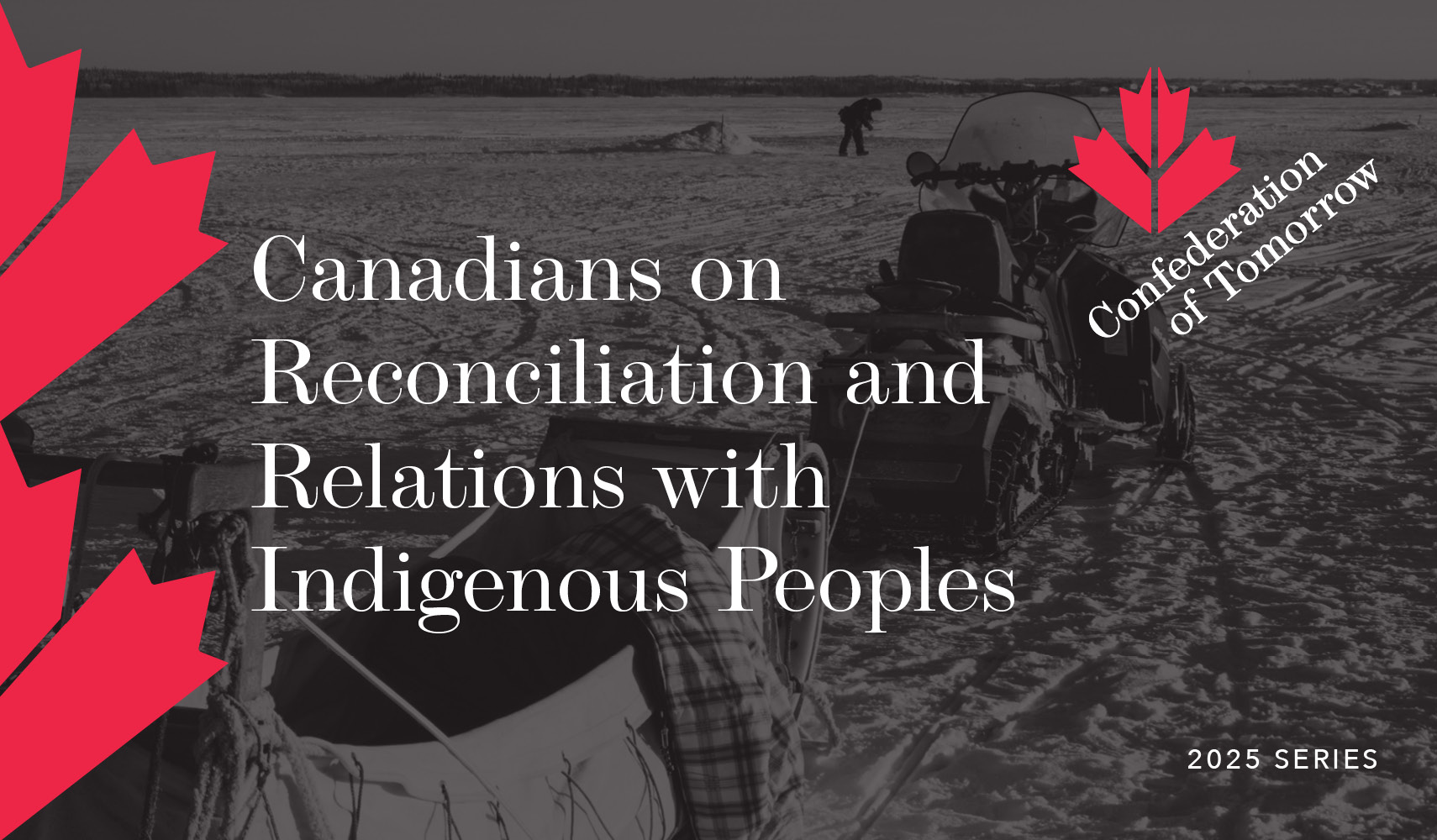Canadians on Reconciliation and Relations with Indigenous Peoples

Canadians on Reconciliation and Relations with Indigenous Peoples
Since 2019, the annual Confederation of Tomorrow surveys have been tracking Canadian attitudes toward Indigenous Peoples and reconciliation. This year’s report from the 2025 survey, published in recognition of the National Day for Truth and Reconciliation, provides an opportunity to assess the state of public opinion on these issues 10 years after the completion of the work of the Truth and Reconciliation Commission.
The survey finds some encouraging trends. For instance, the proportions of both Indigenous Peoples and non-Indigenous people who view current relations between the two groups as positive, and who say they are optimistic that there will be meaningful progress toward reconciliation over the next decade, have both increased. There are also signs that familiarity with the history of Indian Residential Schools in Canada is gradually increasing over time. At the same time, while most feel that individual Canadians have a role to play in bringing about reconciliation, fewer than before believe that governments have not being doing enough.
Key findings
- Canadians’ view of current relations between Indigenous and non-Indigenous people has been steadily improving for several years. The proportion describing current relations as positive has increased among both Indigenous Peoples and non-Indigenous people.
- A plurality of Canadians say that governments have not gone far enough to advance reconciliation, although the proportion expressing this view has declined somewhat in recent years. On this question, there is a significant difference in opinion between the views of Indigenous Peoples and non-Indigenous people.
- About seven in ten Canadians say that individuals like themselves have a role to play in efforts to bring about reconciliation between Indigenous and non-Indigenous people. One in two say they feel strongly about their own role in the reconciliation process.
- Younger Canadians are more likely than their older counterparts to say that governments have not gone far enough to advance reconciliation, and to say they feel strongly that individual Canadians also have a role to play.
- Two in three Canadians say they are either very or somewhat familiar with the history of Indian Residential Schools in Canada. There are signs that familiarity is gradually increasing over time.
- A majority of Canadians continue to feel optimistic that there will be meaningful reconciliation between Indigenous and non-Indigenous people in Canada over the next decade. Optimism has increased slightly since last year. Indigenous Peoples are about as likely as non-Indigenous people to express some degree of optimism.
- A large majority of Indigenous Peoples in Canada have at least some friends and colleagues who are non-Indigenous. However, the reverse is not the case for non-Indigenous people.
- There is a relationship between having friends who are Indigenous, and attitudes toward Indigenous Peoples and reconciliation. On most questions, non-Indigenous people who report having many or some close Indigenous friends are more likely than those with no close Indigenous friends to view current relations positively, and to be optimistic about the prospects for reconciliation.
About the survey:
The Confederation of Tomorrow surveys give voice to Canadians about the major issues shaping the future of the federation and their political communities. They are conducted annually by an association of the country’s leading public policy and socio-economic research organizations: the Environics Institute for Survey Research, the Centre of Excellence on the Canadian Federation, the Canada West Foundation, the Centre D’Analyse Politique – Constitution et Fédéralisme, the Brian Mulroney Institute of Government and the First Nations Financial Management Board.
The 2025 study consists of a survey of 5,391 adults, including 813 who self-identified as Indigenous, conducted between May 1 and June 16, 2025 (92% of the responses were collected between May 6 and May 29); 90% of the responses were collected online. The remaining responses were collected by telephone (both landline and cell phone) from respondents living in the North or on First Nations reserves, or from francophone respondents in New Brunswick.
For more information, contact Dr. Andrew Parkin or the Environics Institute.
This project benefits from the financial support of the Research Support Program of the Secrétariat du Québec aux relations canadiennes (SQRC) / Ce projet bénéficie de l’appui financier du Programme d’appui à la recherche du Secrétariat du Québec aux relations canadiennes (SQRC).

Final report: Canadians on Reconciliation and Relations with Indigenous Peoples
Survey tables
Note: the Confederation of Tomorrow uses separate weighting factors for the overall results, the results for residents of the three territories (the North), and for Indigenous Peoples. When reporting results for the territories (individually or as a region) or for Indigenous Peoples, please use the corresponding separate tables.
- Main data tables for questions covered in this report (provinces)
- Additional tables for Indigenous Peoples
- Additional tables for the territories
Like what you're reading? With our bi-monthly e-newsletter, you can receive even more with the latest details on current projects, news, and events at the institute.
Subscribe